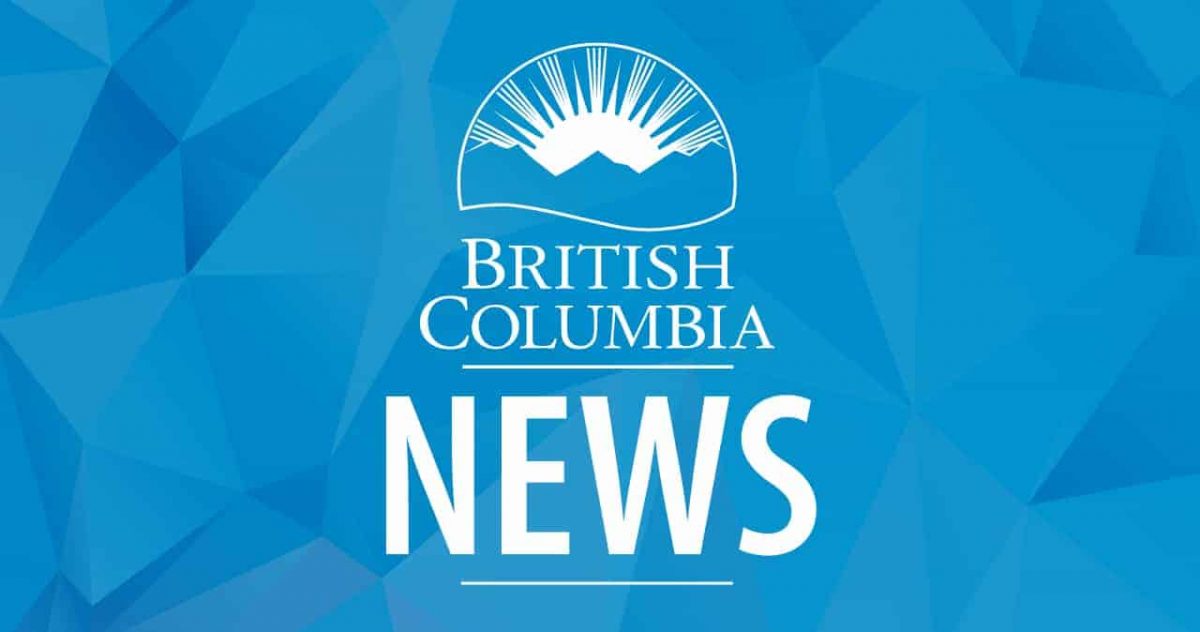
More young people in B.C. will benefit from integrated care
Children, youth and families across the province will benefit from seamless mental-health and addiction services as B.C. expands Integrated Child and Youth (ICY) teams to seven new communities.
“Young people face more complex challenges than ever and it is imperative for them to connect to the right services when they need help,” said Jennifer Whiteside, Minister of Mental Health and Addictions. “The new Integrated Child and Youth teams will provide co-ordinated access to mental-health, wellness and addictions resources, ensuring children, youth and their families have seamless access to these critical services where and when they need them.”
The new teams will serve communities in and around the Central Coast, Cowichan Valley, Delta, Gold Trail, Peace River South, Qualicum and Surrey. The seven new communities will join 13 others in the province with ICY teams in operation or in planning stages.
ICY teams are a key part of the Province’s work to improve access to mental-health and addictions supports to young people and their families closer to home. It is estimated that 75% of serious mental-health issues emerge before the age of 25. In British Columbia, drug toxicity is currently the leading cause of death for people between ages 15 and 18, with suicide as the second leading cause.
“As peer-support workers, we create and run lunch-time drop-in groups in high schools all around the city,” said David Mansoor, peer-support worker, ICY teams, Richmond. “All students are welcome, and we share food and drinks, play games, create art, and most importantly, build relationships. We get to know these youth and they get to know us as safe, caring adults, always leading with a mental-health-first framework.”
Young people up to age 19 and their caregivers can use the teams to connect to peer and cultural supports, and counselling services. ICY teams provide services to those residing within the school district boundary, including young people attending First Nations operated schools, independent schools, alternative school environments or those not in school. The teams’ co-ordinated approach ensures all team members are aware of the care plan and can seamlessly connect the child, youth and family to other services that understand their needs.
“Our government is taking a holistic approach so that children and youth can have a seamless experience when they ask for help,” said Grace Lore, Minister of Children and Family Development. “These new Integrated Child and Youth teams will be able to co-ordinate multi-disciplinary services, making it easier for children and families to get the support they need, when they need it.”
ICY teams reduce barriers to accessing services, providing connections to clinical counsellors, youth substance-use and mental-health clinicians, those supporting Indigenous children and youth, as well as family and youth peer-support workers. Their co-ordinated approach also reduces the number of times young people and their families have to retell their stories, which can be traumatizing for some. ICY teams serve to meet young people where they feel most comfortable, whether in schools or other community settings, and provide them with seamless connection to vital services.
Children and youth with mental-health and addiction needs, and their families can connect with ICY teams through community service providers, school staff, primary care, mental-health and addictions services, Foundry centres, and organizations that support First Nations, Métis and Inuit people. They can also refer themselves.
The Province has committed $101 million over three years to implement ICY teams in 20 school districts to be operational by 2025. The expansion of ICY teams is part of the Province’s work to improve mental-health and addictions care for children and youth, and is supported by complementary investments of $236 million from Budget 2023 over three years in new and expanded addictions care for youth and young adults.
Quotes:
Rachna Singh, Minister of Education and Child Care –
“The future depends upon the healthy development of children in our communities. Integrated Child and Youth teams do invaluable work across the province. It’s rewarding to see young people gain access to wraparound services through more school districts across the province, as we expand and grow this vital program.”
Tuesday Ferguson, youth peer-support worker, Richmond –
“The emphasis on integration between clinical and peer-based approaches has been a major strength of the Richmond ICY team. A youth may be receiving clinical counselling for social anxiety and they can collaboratively set goals with their peer-support worker, such as taking public transit and going to events in the community together. The collaborative approach helps build each other up.”
Quick Facts:
- Communities with ICY teams in operations are supporting at least 1,420 young people per month.
- Children and youth are being helped in eight communities.
- It is estimated that the ICY teams may serve as many as 5,700 children and youth per month once fully operating across all 20 communities.
Learn More:
For a backgrounder listing ICY teams and locations, visit: https://news.gov.bc.ca/files/Backgrounder_ICY_Expansion.pdf
To learn about mental-health and addictions supports in B.C., visit: https://helpstartshere.gov.bc.ca/
To learn more about Integrated Child and Youth teams, visit: https://gov.bc.ca/ICYTeams
